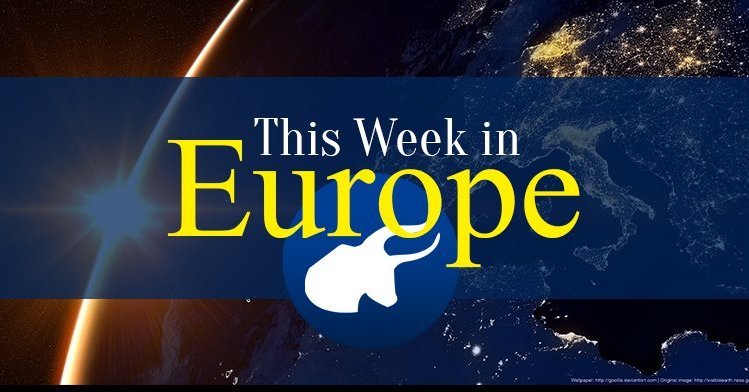Sweden gearing for close election
An Ipsos poll conducted in Sweden ahead of the elections this autumn puts the first three parties in a close contest. The ruling Social Democrats scored 24%, the Moderate Party coming second with 22%. However, the big surprise is that the far-right, anti-immigration Sweden Democrats scored 20% of the support of the respondents, placing them at a record high, after securing just 13% of the votes in 2014. In comparison, the Social Democrats, who dominated Sweden’s political stage for a century, have never polled so low since 1979, when the record started being held.
Irish votes for abortion
This week, voters in Ireland amended the constitution in order to repeal a longstanding ban on abortions. With 66.4% in favor of the repeal and 33.6% against, the referendum, held on Friday, gave a green light to legislation allowing abortion for any reason through the first 12 weeks of pregnancy. A progressive trend has established in previously conservative, Catholic Ireland, after the country voted to allow same-sex marriage in 2015. Irish PM Leo Varadkar commented that “democracy is in action.” The vote also gave a chance to platforms such as Google and Facebook to deal with foreign attempts to sway the electorate.
Survey: Support for EU at the highest score ever measured
A Kantar survey of over 27,000 people across Europe has shown that more and more Europeans believe that their countries have benefited from EU membership and that their voice can be heard across the continent. Marking one year until the 2019 European Parliament elections, the same poll also showed that anti-establishment parties are gaining support.
The attitudes of Europeans have improved since a similar poll was taken in 2016, before Great Britain voted to leave the EU, reaching the highest score ever measured. On average, 67% of respondents believe that their country has benefited from EU membership, with only 12% saying that the effects are negative. However, 63% of Europeans under 24 consider anti-establishment parties to come bearing solutions to the present problems faced by the Union.
Italy gets new coalition and PM
On Wednesday, after almost three months of debates, Italian President Sergio Mattarella asked Giuseppe Conte to form a coalition cabinet out of the anti-establishment 5Star Movement and the far-right Northern League. In his acceptance speech, the virtually unknown law professor sought to calm down foreign partners and the voters ahead of what many may think will be a Eurosceptic government in one of the EU’s largest countries.
Despite the future PM’s reassurances, both the League and the 5SM agreed to renegotiate Italy’s massive public debt with the EU, attempt to reduce the bloc’s powers, repeal austerity and seek better relations with Russia. Early on, Conte faced allegations that he lied about his resume, after an official of the New York University, where Conte said that he “updated his studies”, stated that there were no records showing him attending any course.
Record number of Brits seeking German citizenship
According to Germany’s Federal Statistical Office, 7,493 Britons became German citizens in 2017. The number represents a 162% increase since 2016, and an even bigger rise since 2015, when only 622 Brits gained German citizenship. The connection with Brexit is obvious, but in total, 112,000 people received German citizenship in 2017, most being - in order - Turkish, British, Polish, Italian and Romanian nationals.
EU finance ministers improve Banking Union
This week, finance ministers across the EU member states reached an agreement on a package of measures meant to reduce the risk in the banking industry of the continent. Presided over by the Bulgarian Minister for Finance Vladislav Goranov, the agreement means that the EU will apply international standards devised following the 2007-8 financial crisis, making European banks more resilient to market shocks.
The proposal introduces a binding leverage ratio of 3% for all banks and a ‘total loss-absorbing capacity’ of at least 8% of their balance sheet, securing capital for banks that trade in securities and derivatives. The presidency of the Council will now have to start negotiations with the European Parliament.
Experts deem GDPR avalanche unnecessary
Last week, the EU’s new privacy rules - the General Data Protection Regulation - finally kicked in, resulting in a virtual avalanche of emails received by European consumers throughout the past days. Inboxes were filled, boxes were checked and unsubscriptions were issued.
Companies unsure of the implications of the new rules asked users to re-consent to how their data was being used. However, experts now say that consent given in the past is still valid, and that the GDPR-related craze was unnecessary. On Friday, European data protection authorities supported the analysis of the experts. Moreover, companies do not need consent to send marketing emails to present customers.


Follow the comments: |
|
